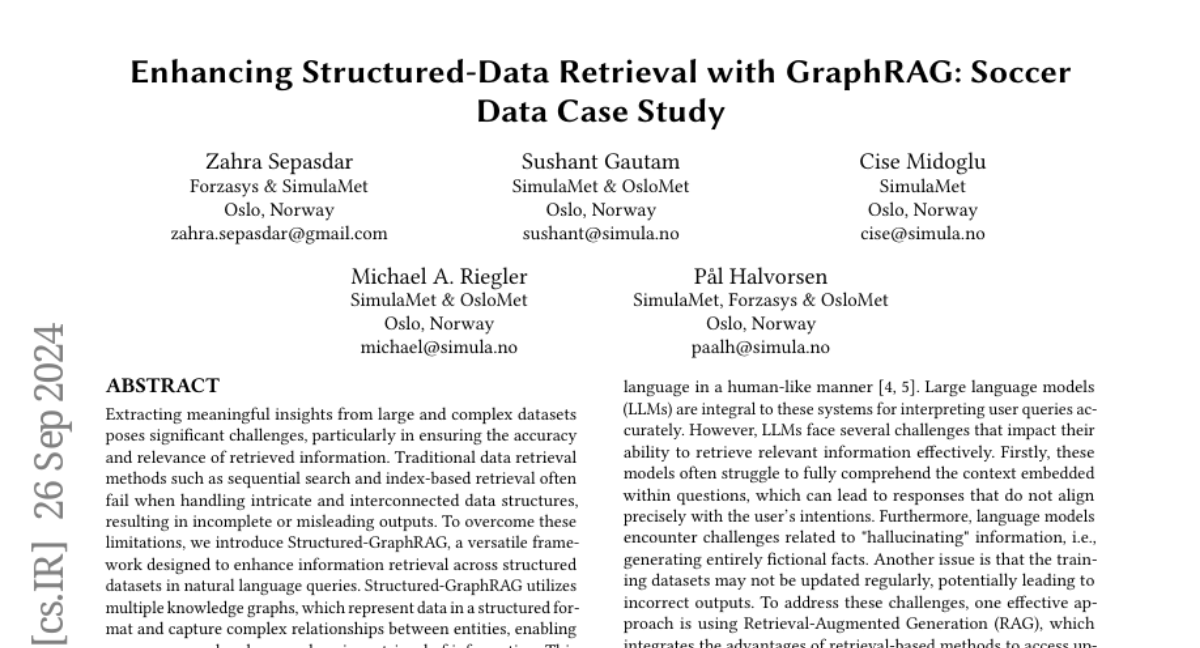Enhancing Structured-Data Retrieval with GraphRAG: Soccer Data Case Study
Zahra Sepasdar, Sushant Gautam, Cise Midoglu, Michael A. Riegler, Pål Halvorsen
2024-09-27

Summary
This paper talks about Structured-GraphRAG, a new framework designed to improve how we retrieve information from structured datasets, using soccer data as a case study. It combines the strengths of knowledge graphs with natural language queries to provide more accurate and efficient results.
What's the problem?
Retrieving meaningful information from large and complex datasets can be challenging. Traditional methods often struggle with intricate data structures, leading to incomplete or incorrect results. This is especially true when users ask complex questions that require understanding the relationships between different pieces of information, like players, teams, and matches in soccer.
What's the solution?
Structured-GraphRAG addresses these issues by using knowledge graphs, which organize data in a way that highlights the relationships between different entities (like players and teams). This framework allows for better handling of natural language queries, meaning users can ask questions in everyday language and get accurate answers. The researchers tested this method against traditional retrieval systems and found that it significantly improved the speed and accuracy of retrieving information from soccer data.
Why it matters?
This research is important because it enhances how we can analyze and retrieve information from structured datasets in various fields, not just sports. By improving the efficiency and reliability of data retrieval systems, Structured-GraphRAG can help businesses and researchers make better decisions based on accurate insights from complex data.
Abstract
Extracting meaningful insights from large and complex datasets poses significant challenges, particularly in ensuring the accuracy and relevance of retrieved information. Traditional data retrieval methods such as sequential search and index-based retrieval often fail when handling intricate and interconnected data structures, resulting in incomplete or misleading outputs. To overcome these limitations, we introduce Structured-GraphRAG, a versatile framework designed to enhance information retrieval across structured datasets in natural language queries. Structured-GraphRAG utilizes multiple knowledge graphs, which represent data in a structured format and capture complex relationships between entities, enabling a more nuanced and comprehensive retrieval of information. This graph-based approach reduces the risk of errors in language model outputs by grounding responses in a structured format, thereby enhancing the reliability of results. We demonstrate the effectiveness of Structured-GraphRAG by comparing its performance with that of a recently published method using traditional retrieval-augmented generation. Our findings show that Structured-GraphRAG significantly improves query processing efficiency and reduces response times. While our case study focuses on soccer data, the framework's design is broadly applicable, offering a powerful tool for data analysis and enhancing language model applications across various structured domains.